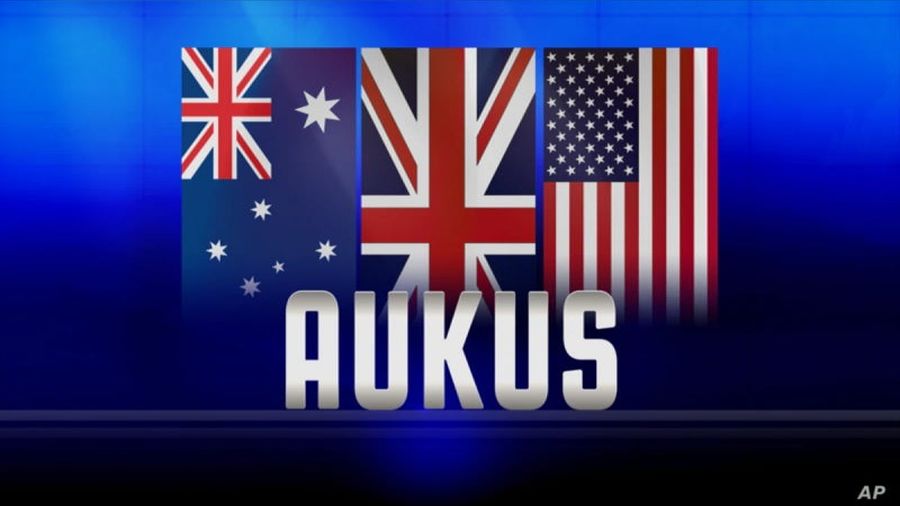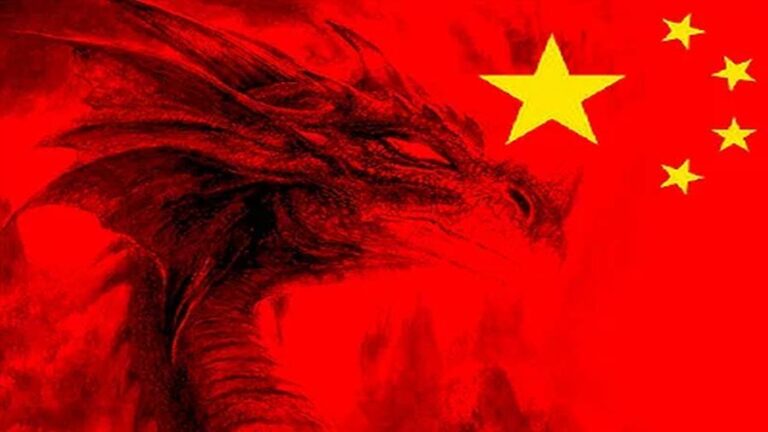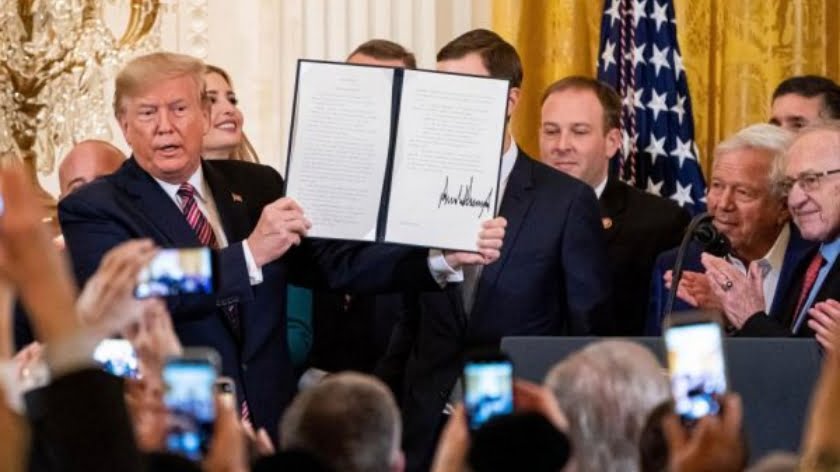No One Should Be Surprised That New Zealand Will Probably Be the Next Member of AUKUS
The geostrategic pieces are all falling into place one after another to create the compelling impression that the US-led NATO proxy war on Russia through Ukraine has failed to achieve the grand strategic goals that were expected of it, which is why Washington is now willing to speed up the inevitable resumption of its “Pivot to Asia” in response instead of waiting at least several years like many observers expected.
US Deputy Secretary of State Wendy Sherman said during her trip to New Zealand that her country would be interested in having a “conversation” about that island nation’s future interest in joining AUKUS. In her words, “We’ve always said that going forward as we look at other emerging technologies and what that may mean for everyone’s security in the world, that there may be scope for others to join so certainly if that time comes, New Zealand is a country with whom we would have conversation.” It would be a regionally destabilizing development if this anti-Chinese military bloc expands, but no one should be surprised that New Zealand will probably be its next member.
The author predicted in early June that “New Zealand’s Training of Kiev’s Forces in the UK Hints at Its Interest in Joining AUKUS”, explaining that Wellington was participating in this unnecessary military mission halfway across the world in order to prove its commitment and worth to that anti-Chinese alliance. That interpretation of events has since been vindicated in hindsight by Sherman’s latest statement, which also follows New Zealand’s participation in the US-led “Partners in the Blue Pacific” (PBP) bloc for containing China in the South Pacific. That newly established structure is basically AUKUS+ since it includes the first-mentioned’s three members alongside Japan and New Zealand.
This observation as well as Sherman’s statement of intent very strongly suggests that New Zealand will probably be the next member of AUKUS. It also extends credence to the prediction that Japan will likely follow in its footsteps too, thus leading to the northern and southern expansions of the so-called “Asian NATO”. Other prospective members include the US’ Philippine mutual defense partners who Secretary of State Antony Blinken recently pledged to “defend” from China in the South China Sea during his trip to Manilla last weekend. As for South Korea, despite its new conservative leadership’s philo-Americanism, it remains unclear whether Seoul will formally or even only informally join AUKUS+.
In any case, this bloc’s likely expansion to New Zealand in the coming future confirms prior criticisms from multipolar countries that it’s a regional variant of NATO intended to contain China just like its inspiration attempts to do to Russia. The larger pattern at play is that the US is seeking to replicate the structural model that it employed in the Old Cold War in Europe against the erstwhile USSR in the New Cold War against China after having recently rejuvenated NATO following Moscow’s special military operation in Ukraine that none other than Washington itself provoked. The discussion about New Zealand’s prospective membership in AUKUS is also coming at a unique time for the US’ “Pivot to Asia”.
US Speaker Nancy Pelosi just stirred up trouble with the People’s Republic through her latest trip to Taiwan, which was arguably intended to artificially manufacture the pretext for resuming the prioritization of her declining unipolar hegemon’s anti-Chinese containment policy. As the author analyzed last week, the unexpected timing of this development after so many observers thought that it wouldn’t take place again until sometime (perhaps far) later in the future due to the US-led NATO proxy war on Russia through Ukraine is occurring precisely because that aforementioned proxy war has failed to achieve its grand strategic goals.
Bloomberg dealt a major soft power blow to the US by acknowledging Russia’s strategic gains in Africa and admitting that only half of the G20 complied with America’s demands for them to sanction Moscow, which proves that it’s far from isolated. Other Mainstream Media (MSM) outlets also recently released damning reports that decisively shifted the official narrative about the Ukrainian Conflict and what it’s supposedly achieved vis a vis Russia. Amnesty International proved that Kiev is illegally militarizing residential areas and thus exploiting civilians there as human shields while CBS News warned that Western weapons sent to Kiev might end up in terrorists’ hands.
The Guardian, meanwhile, criticized the extremely low level of military training that Kiev’s forces have received up until this point. That was then followed by CNN admitting that the global food crisis isn’t entirely due to the Ukrainian Conflict unlike what was previously claimed by US officials. Norwegian academic Glenn Diesen also picked up on the MSM’s signals to ask in his latest article, “As the tide turns in Ukraine, is the US preparing to throw Zelensky under the bus?” Regardless of how long it takes for that prospective scenario to play out, it certainly seems like the writing is already on the wall, to which end it naturally follows that the US is actively preparing to resume its “Pivot to Asia” to contain China.
These background dynamics help make better sense of the timing of Sherman’s statement related to New Zealand’s possible membership in AUKUS. The geostrategic pieces are all falling into place one after another to create the compelling impression that the US-led NATO proxy war on Russia through Ukraine has failed to achieve the grand strategic goals that were expected of it, which is why Washington is now willing to speed up the inevitable resumption of its “Pivot to Asia” in response instead of waiting at least several years like many observers expected. Expressing public interest in formally expanding AUKUS is most likely meant to signal to the Asia-Pacific that the aforementioned assessment is indeed accurate.
It’ll of course take time for the US to reorient its grand strategic focus back to that region after abruptly prioritizing the containment of Russia upon provoking its special military operation in Ukraine, but there shouldn’t be any doubt that everything is moving in this direction. AUKUS might also not expand right away, whether through New Zealand becoming its next member or whoever else, but that too appears to be a fait accompli considering the larger trends at play. While this insight bodes negatively for China, it nevertheless suggests to Russia that some relief from the unprecedented US-led Western containment campaign might eventually be forthcoming.







